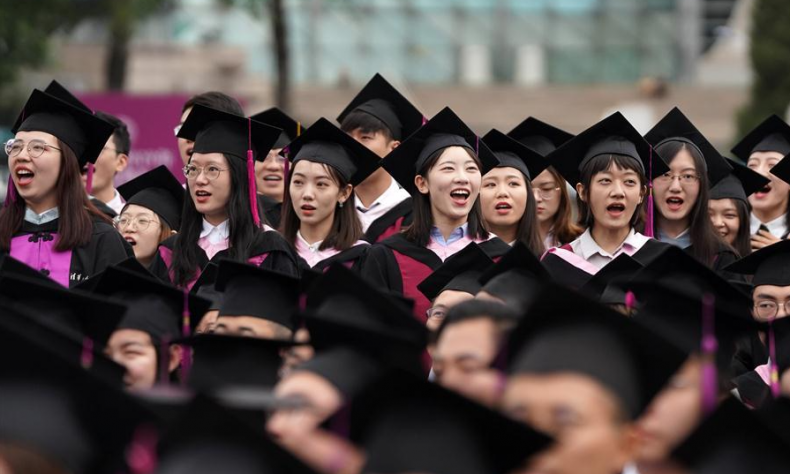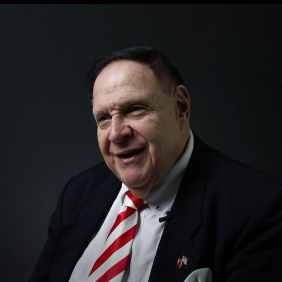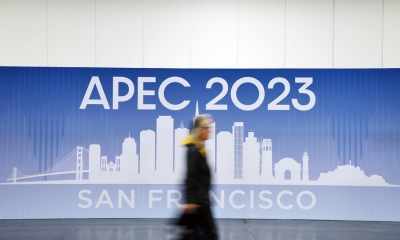A Peace Corps for China: The Time Is Ripe

People-to-people diplomacy, embodied in a Chinese Peace Corps, is a win-win for all stakeholders.
For many years in China, I’ve written about global perceptions of China’s global soft power. Sadly, the trend has generally not gotten better despite the fact that China’s people rate their satisfaction with their government’s performance both before and after Covid as the highest in the world when compared to citizens of other countries when asked about their own government’s performance. Inspired by the fact that the Chinese word for “crisis” is comprised of the characters for “danger” and “opportunity”, I sense that the planets are aligned for China to “kill two birds with one stone” by establishing a Chinese “peace corps”.
In a 2015 China Daily op-ed entitled “Peace Corps just an idea for China”, I proposed this idea. Now with China’s international soft power facing stronger headwinds, coupled by the presence of a more abundant supply of potential volunteers, who could serve China as informal ambassadors of goodwill and at the same time improve their own skills by helping other nations, I believe that the idea should be carefully considered.
It was such a different world back in 2015 that I even broached the possibility of a Sino-U.S. effort, given the six-decade experience of the U.S. Peace Corps. Now, while that idea seems impossible and impossibly naïve, bear in mind that the U.S. and Russia to this day, despite the situation in Ukraine, cooperate in the International Space Station (ISS) with astronauts and cosmonauts sitting side-by-side 250 miles above the Earth.
The Sino-U.S. cooperation won’t happen any time soon, if ever! A Chinese Peace Corps should be an urgent priority.

President Xi has long been urging China to tell its story better and China has spent billions doing so, including hosting the 2022 Winter Olympic Games. The results there were not all encouraging. In the U.S., the impressive opening ceremony was watched by less than 16 million people, half of the previous one. A mere 5 percent of total U.S. population tuned in.
Public opinion polling by the Pew Research Center released in 2021 show that unfavorable views of China have reached historic highs in 17 advanced economies, including the U.S. Last year, the U.S. Council on Foreign Relations issued a study paper entitled “China’s Global Image”.
I don’t believe the billions invested in the 2022 or 2008 Olympics or the billions spent on international Chinese media have moved the needle appreciably.
What’s to be done? New China’s first Premier, Zhou Enlai, had a good answer that is more relevant and doable than in his time because now a renovated China has stood up and is rich, powerful and confident. He called it “folk diplomacy,” a parallel, supportive track to the formal diplomacy of ambassadors and their embassies that most people never encounter in a lifetime.
Today we call Zhou’s idea “people-to-people diplomacy” (P2P). It relies on successive, sustained up-close and personal human interactions. It takes advantage of what China has in over-abundant numbers: human talents, especially young people. Each one has the ability to develop deep relationships and make long term friends for China abroad under the banner of common prosperity and mutual respect.
There’s no need to reinvent the wheel since several countries have already been doing this for years. As an American, the one I know best is the U.S. Peace Corps started by President John F. Kennedy in whose 1961 Inaugural address I heard him say words I will never forget: “Ask not what your country can do for you. Ask what you can do for your country.” The program has been tested and improved upon globally for six decades, but never reached its full potential for lack of sufficient financial and human resources, both of which China has in abundance. Even now, the U.S. Peace Corps’ existence is threatened by budget hawks and isolationist U.S. Republicans.
Another model is the United Nations Volunteers, administered by the UN Development Program. In 2021, it provided over 10,000 volunteers to 55 UN entities in 160 countries. Its doctors, nurses, public health officers and community workers were pivotal in helping contain Covid-19.

P2P diplomacy, embodied in a Chinese Peace Corps, is a win-win for all stakeholders. In China, with a record number of over 11 million college grads this year, too many capable students faced the daunting challenge of finding good jobs, let alone ones that would permit them to put their knowledge to work, giving them not only real-world work experience and income, but also further developing their skills while serving China around the globe. Today, for those who can’t find a good job, their choices are to “lie flat” or be under-employed.
For example, in 2021 a shocking story was widely discussed, that of 135 new workers in a Hunan province factory processing tobacco leaf and rolling cigarettes, nearly one-third had a master’s degree. All their money, their families’ money, and the Chinese people’s money spent on an education to better serve society, literally went up in smoke.
Such talent could be put to work abroad in helping other countries meet unmet needs. At the same time, each Chinese volunteer would be not only receiving on-the-job training, but building life-long friendships for China, improving their professional and interpersonal skills and building peace and international understanding around the globe.
Obviously, funding China’s Peace Corps, to be done well, requires a significant budget. For comparison, the current annual budget for the U.S. Peace Corps exceeds half a billion dollars for about 4,000 volunteers in 65 countries, but Republican America Firsters are trying to cut or eliminate it. In China major enterprises both public and private, along with the Chinese government, should bear the funding costs.
Now that China is rich, strong and proud, this model can enable it to help other nations eliminate extreme poverty and at the same time earn respect and admiration. Premier Zhou’s idea is ripe for action and the time to act couldn’t be better.
The article reflects the author’s opinions, and not necessarily the views of China Focus.
 Facebook
Facebook
 Twitter
Twitter
 Linkedin
Linkedin
 Google +
Google +






